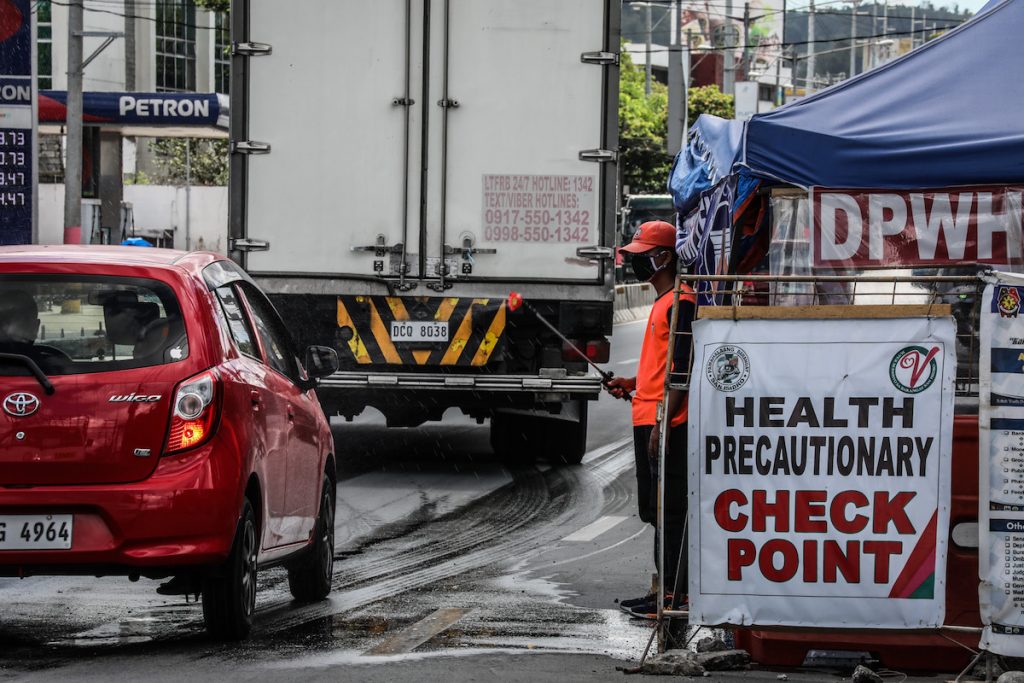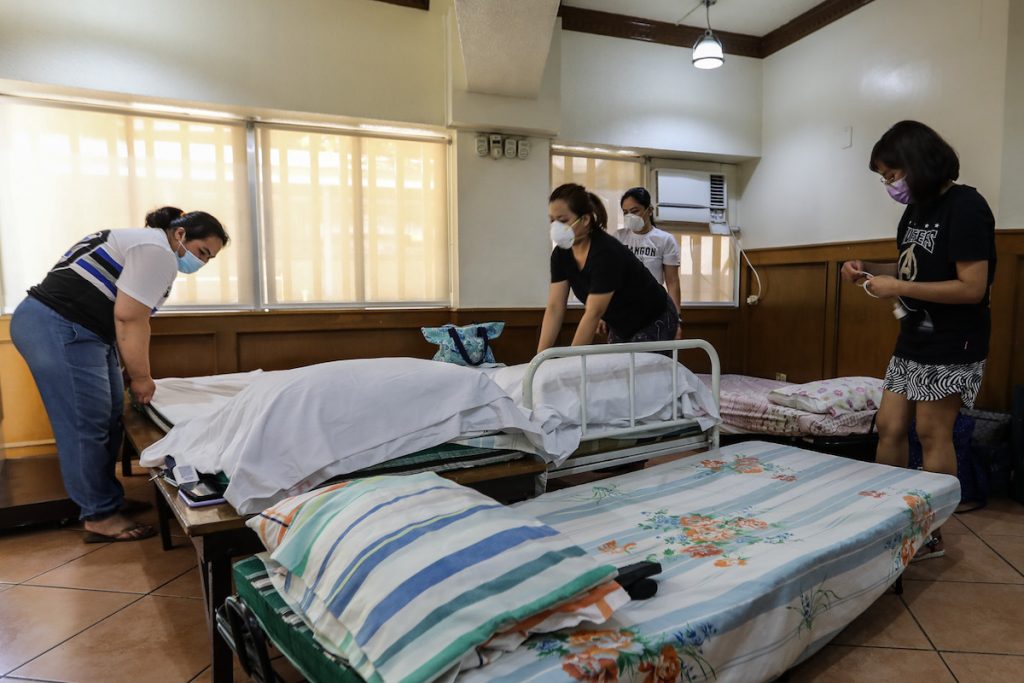Several church leaders in the Philippines have expressed support for the government’s decision to extend the lockdown aimed at arresting the spread of the new coronavirus.
In the Diocese of Cubao in the capital Manila, the suspension of public Masses has also been extended until the end of the month.
Bishop Honesto Ongtioco of Cubao said he will follow the government’s extension of the “enhanced community quarantine” period until April 30.
“We will follow the government’s extension of quarantine. We seek for the good of all,” said the prelate.
Priests will continue to celebrate Masses that will be made available to the faithful via radio, television and live streaming online.
Philippine authorities extended the lockdown, especially in the main island of Luzon, to buy the government enough time to improve its public health response.
With the extension, people are required to stay at home further to avoid transmission of the disease, said Cabinet Secretary Karlo Nograles.
He said all the prevailing rules and exemptions during the initial lockdown of Luzon will continue.
The government is eyeing to start massive COVID-19 testing by April 14 as it fast-tracks the accreditation of more laboratories with coronavirus testing capability.
In the Archdiocese of Manila, Bishop Broderick Pabillo said he will still discuss with members of the clergy the effect of the extended lockdown.
The prelate, however, assured that the archdiocese will follow the government on quarantine protocols.
“We ask that the government should speed up providing help to the poor and daily wage earners,” said Bishop Pabillo.

Bishop Ruperto Santos of Balanga has also expressed support for the extension of the lockdown period.
He said, however, that the government must be ready to provide immediate help and assistance to people most affected by the health crisis.
The bishop said the extended lockdown will be more “helpful and beneficial” to everyone.
“The trend (of the number of cases of the disease) is rising and only now we have mass testing,” noted Bishop Santos.
He said that to contain the spread of the virus and as precautionary prevention for contamination the lockdown has to be extended, “but financial help and assistance should immediately be available.”
Bishop Santos urged everyone to cooperate with the government, saying that now is the time for people to be united and work together.
“We should cooperate, not to contradict; to collaborate, not to make offensive commentaries,” said the prelate.
Call for solidarity
Several church groups in the country have circulated a petition letter urging the faithful and the government to extend “solidarity, mercy, and compassion” during the lockdown.
The Faith-Based Organization Forum appealed to authorities to ensure that “all essential dimensions” of flattening the epidemic are included in its plans.
The network called for the creation of “cohesive medical and health strategies,” including the hiring and training second-liner healthcare workers.
They also appealed for the implementation of a “comprehensive support [system] to vulnerable families in quarantine” and give protection against domestic violence against women and children.
The group also appealed to the faithful to fast and abstain from spreading “fake news” and avoid “engaging in any conversation that divides rather than unites our people.”
“Physical distancing should not divide us. Isolation should not bring indifference. The crisis should not conquer us,” read the group’s statement.
Father Edwin Gariguez, head of the social action arm of the Catholic bishops’ conference, said the observance of the Holy Week “invites us to continue the journey of Jesus in conquering the darkness of death and hopelessness.”
“We are challenged during this COVID-19 crisis to live our Christian calling by caring for the poorest and the most vulnerable, in the spirit of the self-giving love of the Lord,” he said.

Evangelical Bishop Noel Pantoja noted that the Passion of Christ “has become our daily reality especially among the sick, the poor, and the most abandoned in the society.”
He reminded the faithful that it is in the darkest days, “when we too are almost empty, that our Christian duty must bring out generosity to those who have less in life.”
Bishop Reuel Norman Marigza of the National Council of Churches in the Philippines said the impacts of the lockdown on the poor “give us an opportunity to share in their sufferings.”
“This is the time to deepen our faith by fulfilling our mission to amplify the voice of those who are not heard and uphold the right to life and the dignity of all creation,” he said.
Mark Saludes contributed to this report.






